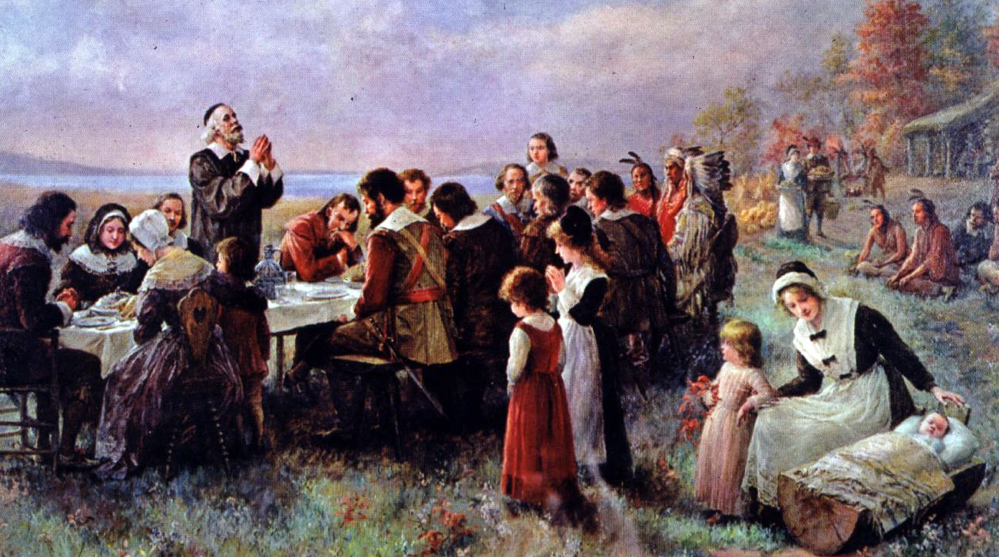By Charles Euchner
Thanksgiving remains the essential American holiday. It brings together kith and kin. Food and drink are plentiful. Don’t forget the Macy’s parade and the annual Detroit Lions game. And it’s (mostly) free of commercial exploitation.
After hearing an interview with Canadian author Margaret Visser, I offer one other reason to appreciate this moment of pause before the Christmas rush. To wit: It’s the only holiday dedicated to the power of language.
The purpose of the holiday is to give thanks. You say what you’re grateful for—your health, job, family, friends, church, neighbors, customers. You pause a moment, collect your thoughts, and then speak.
Other holidays mark religious moments, birth dates of leaders, and anniversaries of historic moments. But Thanksgiving, alone, encourages us to speak, to put our fullest feelings into words. Thanksgiving asks us to acknowledge how lucky we are to be alive, in a great country, among family and friends, with all kinds of possibilities for making more of ourselves and giving back to our community.
Linguists refer to this kind of statement as a “speech act.” We normally distinguish the concepts of speaking and acting. But philosophers like John Searle say that to speak is, in fact, to act. To act is to change the world. When you speak—whether you’re yelling at someone in traffic, cooing to an amour, delivering a speech, or arguing in court—you act. Giving thanks, as we do today, is a special kind of speech act. It’s both voluntary and expected, generous and reciprocal, moral and emotional.
Visser, the author of The Gift of Thanks (excerpt), yesterday took the listeners of NPR’s “On Point” on an etymological romp about the idea of thanks. Consider these roots and variations of our modern vocabulary of gratitude:
The Greek word for gratitude, translated into Latin, is gratia—not just praise but also delight and joy.
The Germans added the word to think, denken. To say thank you is to pause and reflect for a moment, rather than taking something and leaving right away.
The French use the term reconaissance (with the root word cognition), which recognizes the other.
The Japanese say “I’m sorry” as a way of expressing gratitude, acknowledging the sacrifice involved in any gift or good gesture: “I’m sorry to have intruded on your life.”
As Visser explains, gratitude and thanks provide essential glue to a society depleted of traditions and dedicated to individual pursuits. In an age when anything goes, saying thank you (and other social etiquette) provides the mortar for the big gaps between the bricks.
Giving thanks is, in some respects, a duty. As children we are taught to say please and thank you and we get chided when we forget. For a while, these manners are perfunctory. But then they become genuine. Saying thanks takes on an emotional meaning. After saying thanks enough times, we really mean it.
That is the essence of democratic practice. Democracy does not demand that we all like each other, think each other smart, or compromise our own interests. As opponents to the civil rights legislation of the 1960s noted, no law can make us love each other. But we need to respect each other even when we don’t want to, in order to get along. So we say please and thank you, even to people we can’t stand. We accept calls, answer requests, acknowledge others’ ideas, work together on committees, even exchange favors – even when, given a choice, we might not prefer to do so.
In the process of doing the right thing, we start to feel something. We take to heart the meaning of those practices. Partly that’s because of reciprocity. But also it’s because we internalize the meanings of our actions.
As a speech act, giving thanks affects not only how other people think and feel, but how we see ourselves. Thanksgiving shows, as much as anything, the power of words to enlarge us.
Lots of reasons, then, to like Thanksgiving, the holiday dedicated to speech acts.

